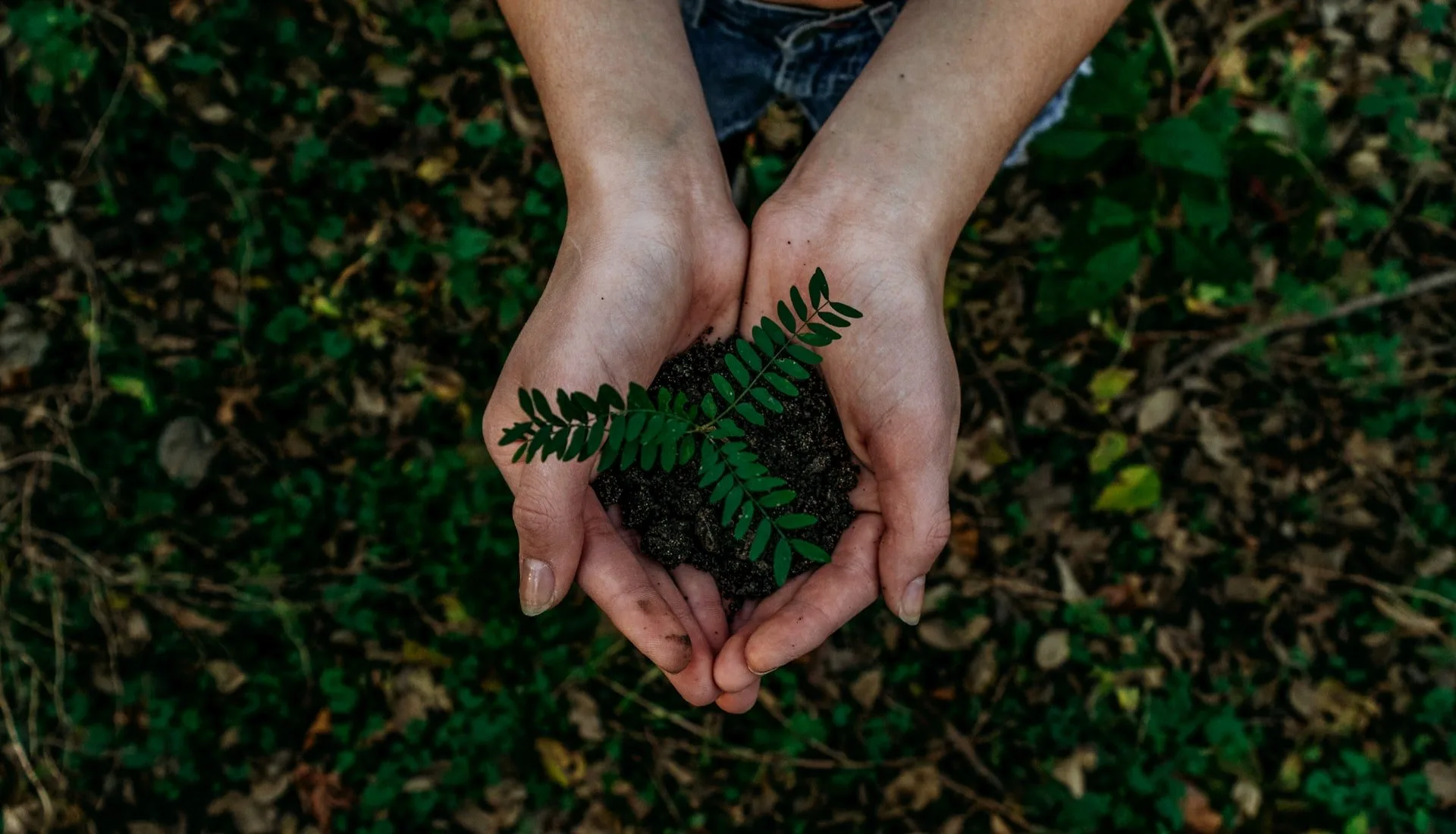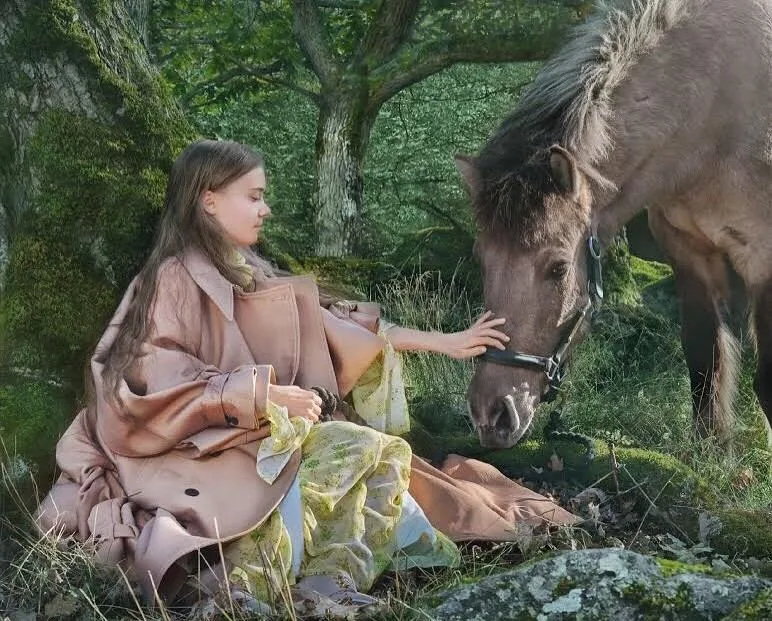In the inaugural issue of Vogue Scandinavia, climate activist and cover star Greta Thunberg is calling out the fashion industry. She’s using her platform to criticize them for their huge role in the current climate crisis.
“If you are buying fast fashion then you are contributing to that industry and encouraging them to expand and encouraging them to continue their harmful process.” – Greta Thunberg, Vogue Scandinavia
On the cover of the new issue, the 18-year-old stays true to her word in the interview. On the cover, she wears clothes all made of sustainable, recycled material.
In the interview, Thunberg also shared that she takes her sustainability fashion practices very seriously. She adds that “The last time I bought something new was three years ago, and it was secondhand. I just borrow things from people I know.”
The interview comes days after a report from the Intergovernmental Panel on Climate Change revealed that when it comes to climate change, we are in the endgame and if we don’t do something immediately, then there’s no coming back.
“If the pandemic has shown us one thing, it is that the climate crisis has never once been treated as a crisis,” Thunberg said.
Greta Thunberg Calls Out Fast Fashion
In an Instagram caption under an image of her on the cover of Vogue Scandinavia, Thunberg once again called out the fashion industry for its practices and how said practices are slowly harming the planet;
“The fashion industry is a huge contributor to the climate-and-ecological emergency, not to mention its impact on the countless workers and communities who are being exploited around the world in order for some to enjoy fast fashion that many treat as disposables.”
What climate-friendly changes can the fashion industry make?
View this post on Instagram
“Our message to every country, government, business and part of society is simple. The next decade is decisive for climate action,” says Alok Sharma, president-designate of the United Nations Climate Change Conference following the release of the climate change report,
“We all need to follow the science and embrace our responsibilities to keep the goal of 1.5°C alive…This includes the fashion industry.”
We’re out of time. The fashion industry needs to act now. The only question is, where do they start?
1. Supply chain emissions
Supply chain emissions are the biggest contributors (more than 70%) to the fashion industry’s massive carbon footprint. As such, if the industry wants to curb its impact, then it needs to start there. Thankfully, some brands have already taken up the pledge.
In 2019, PVH (Calvin Klein and Tommy Hilfiger) pledged to reduce 30% of its supply chain emissions by 2030. This past June, Burberry vowed to be ‘climate positive’ by 2040, and as such, they pledged a 46% reduction also by 2030.
In May, LVMH (Christian Dior, Givenchy, Marc Jacobs, Stella McCartney, Kenzo, Celine, Fenty, and Bulgari.) shared plans to reduce, or avoid, supply chain emissions by 55% by 2030, and halve emissions from energy consumption by 2026.
2. Become more sustainable
It’s important for fashion brands to be more conscious of the life-cycle of the products that they create. What happens to it after the wearer grows bored of it? Does it end up in a thrift store or a landfill?

Photo by Rio Lecatompessy on Unsplash
Denim brand Levi’s, for example, unveiled their Wellthread™ x Outerknown collection in 2019. The range is made from cottonized hemp and, as we know, the manufacturing of hemp is much more sustainable, and it’s also incredibly durable.
2. Your workforce matters
Unfortunately, climate change tends to affect the most vulnerable, yet the least responsible. In the fashion industry, this refers to the millions of workers in the supply chain.
For one, workers are routinely exploited. Additionally, countries that are responsible for the majority of garment production are also dealing with serious climate disasters. Bangladesh is the second-largest producer in the garment industry. The country’s foreign minister, Abdul Kalam Moment, told Sky News that the government estimates that 500 000 people are displaced by climate change every year in the country.
Look out for greenwashing
You cannot mass produce fashion or consume ”sustainably” as the world is shaped today. That is one of the many reasons why we will need a system change.
Photo by Alexandrov Klum 3/3 https://t.co/jrNSf205XQ— Greta Thunberg (@GretaThunberg) August 8, 2021
Now, while it’s great that the fashion industry is seemingly doing its part. However, it’s important not to get lost in the marketing and hype.
For one, regardless of their press releases that sprout promises to reduce carbon emissions by 2050, how many of these brands actually have provided clear strategies and business models that show how they’ll reduce carbon emissions? What’s more, of the commitments they have made, how many are based on science and not just because it’s trendy to be climate-friendly?

Photo by Noah Buscher on Unsplash
You can do your part
“The more I have spent time talking to people, travelling, reading and experiencing, the more convinced I am that changes will come from the bottom up,” Thunberg said.
And when I say from the bottom up I don’t mean that we – through our power as consumers make the changes that are necessary. But rather that we as democratic citizens and voters and family members, friends – that we use that power to create change and put enough pressure on people in power.”
Yes, we will always need clothing and other goods. However, this doesn’t mean that we shouldn’t be concious of our behaviour. I’m a proud thrifter. My closet is filled with designer brands that I regularly wear, with each item bought for $5.
On the cover of British Vogue’s January 2020, Taylor Swift posed in a Chanel jacket. The jacket is from the 2005/2006 collection.
“I wanted to put a vintage Chanel jacket on the cover of Vogue because I feel that, with the global climate crisis, we all have to do what we can to contribute to the conversation around sustainability,” explained Vogue editor-in-chief Edward Enninful.
The vintage look is in and it’s not only chic, but it’s much better for the planet.
The bottom line
“You don’t stop flying, you don’t stop consuming or you don’t go vegan because you want to lower your own individual carbon footprint,” Thunberg explained. “We do it because we want to influence the people around us, we want to send a clear signal that we are facing an emergency and when you are in an emergency you change your behaviour.”



![women [longevity live]](https://longevitylive.com/wp-content/uploads/2020/01/photo-of-women-walking-down-the-street-1116984-100x100.jpg)










